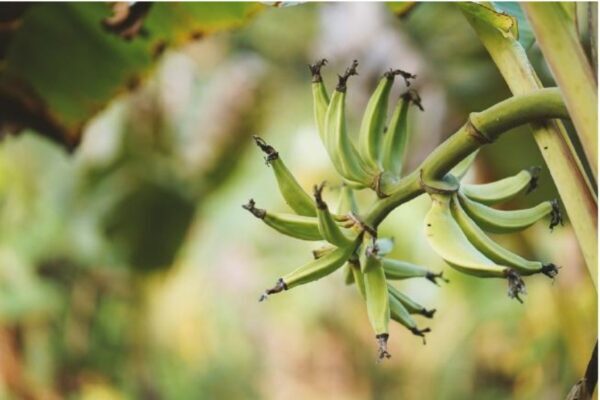A STEP-BY-STEP GUIDE ON HOW TO START PLANTAIN FARMING IN NIGERIA
Research The Market
The first step to having a successful plantain farming business in Nigeria off the ground is by researching the market. It is important that you know ahead of time what goals you are trying to achieve with your plantain farm. Do you want to sell your plantain locally or internationally? Do you want to harvest your plantains and create a product like plantain chips or amala by yourself? Is there a gap in the market that no one is serving? You will find all these out when you carry out proper market research.
One of the main reasons start-ups fail is that they are unable to offer a service that the market actually wants. They are struck with a ‘novel’ and ‘original’ business idea, and they excitedly pour in time and resources into creating something that nobody wants. This is where market research comes in.
Market research allows you to validate your one-in-a-million business idea. It allows you to avoid a mountain of risk, anxiety, and second-guessing. It allows you to draw up a business plan that is tailored to your business idea.
In this post here, we share how you can carry out proper market research. Use the guide to do your plantain farming market research.
Create A Business Plan
After conducting market research for your plantain farm, it is time for you to craft a well-detailed business plan for your plantain farm in Nigeria. Business plans are important to businesses because they show the roadmap for a business. Creating a business plan for your farm will help you document your goals, your vision, your mission, your sustainability plan, and other important business information.
A business plan is a breathing document that maps out the details of your business. A business plan covers what your business will sell; its structure, what the market looks like, how to sell the products and services, funding needed, what the financial projections are, the permits, leases, and documentation that would be required.
With the information that you have gathered from your market research, you should be able to create a business plan that sets you apart from the competitors and help you position yourself in the market.
If you are at loss on how to create business plans for your plantain farm, you can use our business plan guide here to create an amazing business plan. Alternatively, use our free business plan template here for ease.
Source For Funding
Now that you have concluded your plantain farm market research and business plan, the next step is for you to source the funds to finance your farming. Unless you have land, you will need money to acquire farmland, and you will also need to spend on soil testing, buying the plantain suckers, managing your farm, and paying for labour when it is necessary.
There are many ways that you can get funding to finance your plantain farm in Nigeria. Below I’d discuss a few:
Bootstrapping
Bootstrapping simply refers to a practice where a business owner; in this case, the plantain farm owner is responsible for the full financing of the farm. Typically, people who bootstrap must have had another source of income and saved up enough money to start the farm.
Generally speaking, bootstrapping is the safest form of funding as it allows you freedom from the pressures of investors.
Family and Friends Support
Another way to get funding for your plantain farm is through family and friends funding. As the name suggests, it is a type of funding where family and friends support your plantain business by giving you loans that are usually interest-free, donating money, and sometimes helping you on the farm itself.
Family and friends are your closest support system, so it is often advisable to turn to them for funding when you want to start your plantain farming in Nigeria.
Loan
Sometimes, your plantain farm business plan might need you to acquire large hectares of land to start the farm on a large scale. When you are in this position, you might need to take a business loan to finance your plantain farm.
There are various forms of business loans that you can take depending on your need. You might decide to take a small business loan from fintech loan companies, or you might want to approach a bank for a loan-the choice is yours. But before you take a loan, make sure that you have a plan to pay back easily so as to avoid getting into trouble.
Grants And Funding
Another way that you can acquire funding for your plantain farm in Nigeria is by applying for agricultural grants and funding opportunities. There are always agricultural grants and funding opportunities in Nigeria that you can take advantage of. You have to always stay in the know to be aware of which grants and funding opportunities are open; and how to take advantage of them.
Buy/Lease Farmland
After getting your funding in place, the next line of action is acquiring land for your plantain farm in Nigeria. The profitability of a plantain farm is highly dependent on the size of the farm. This is because, the more land you have, the more plantains you can plant. Therefore, you should get sizeable farmland to start your plantain farming in Nigeria.
Additionally, since plantain is a plant that needs a lot of water for growth, it is advisable that you get farmland in the forest belt of Nigeria. States like Ondo, Ogun, Oyo, Osun, Delta, Edo, Cross River, and Akwa-Ibom states are known for having favourable weather for plantain farming. If you do decide to get farmlands that are not in these states, then you should plan to install irrigation systems on your farm to make up for the lack of natural water supply.
Lastly, it is always better to buy your farmlands than lease them, but in a situation where you cannot afford to buy them, you can always rent or lease the farmlands.
Do Soil Testing
I should have put this step before the step where you acquire your farmland, but I know that you may not have access to the land until you enter discussions with the owner. However, you should do soil testing before making the final payment for the land where you want to host your farmland.
Soil testing simply implies you testing a land to know its nutrient levels and PH levels in order to determine whether the land is suitable for the crop you plan on cultivating. For plantain farming in Nigeria, loamy soil is the best kind of soil because it contains the right ratio of organic components. Testing the soil of your farmland will help you know if it is the right one for you.
Prepare Your Land
Now that you have acquired your land and tested it for plantain farming, the next step is to prepare your farmland for planting. You need to clear the bushes, remove trees, stumps, and shrubs to make the soil tillable. After that, add the necessary manure and fertilizers to get the soil ready for planting. When preparing your land to cultivate plantains, make sure that you use a lot of organic manure.
Get The Right Plantain Suckers
To cultivate plantain, you need plantain suckers. Plantain suckers are smaller plants that grow from a mature plantain plant that can be transplanted and re-grown. They may be considered as baby plants that are used to start new plantain plants. There are three major types of plantain suckers namely Maidenheads, Sword suckers, and Water suckers but they are all good for planting.
What you have to take into consideration when buying plantain suckers for your new farm is that uprooted suckers may be bad for you in the long run. Most times, these suckers are infected with diseases which means that you will not enjoy a fruitful yield come harvest time. Instead, buy clean cultured suckers that have been grown specifically to help farmers get the best yield.
Plant The Right Way
How and when you plant your suckers is very important to the success of your plantain farming business in Nigeria. For example, the month of September has been identified as one of the best months to cultivate plantain in Nigeria. This is because planting in September will make sure that your plantains mature during a season when there is a scarcity of plantains in the market, thereby allowing you to sell your harvest at almost double the price on a normal day.
Manage Your Farm Rightly
After planting your suckers, you should not fold your hands and wait for a harvest-you have to actually tend the farm. If you plant during the dry season, you will need to irrigate your farm regularly. Asides from watering your farm, you also need to weed the farm, apply pesticides as at when due, and also apply manure accordingly.
Harvest Your Crops
Plantains take anywhere between 8-9 months to reach maturity and produce the first set of plantain bunches. When the plantain fruits fully develop, harvest your matured plantain and take it to market. Kindly note that it is better to harvest plantains when they are matured but still unripe.
Plantain Farming In Nigeria: Where To Sell Harvested Plantains
Many farmers struggle with selling their harvested plantains in Nigeria mainly because they don’t have enough information. Like I said at the beginning of this post, there’s a huge market for plantains in Nigeria. All you need to do is fill that void and you will make good money. Here are some ways that you can sell your harvested plantain in Nigeria:
Sell In The Local Market
The easiest way to sell your plantains is by selling in the local markets. The local markets are usually open markets where anybody can walk in and sell their products and goods. So, the local markets should be the first selling place where farmers want to sell their products. Some of the popular local markets where you can sell your produces include Mile 12 market in Lagos, Oyingbo Market in Lagos, Bodija Market in Ibadan, Nnewi Market in Anambra state, and others.
Sell To Agro-allied Companies
Another way to sell your harvested plantains is by selling to companies that make agro-allied products. Some of the popular products that are made from plantain include plantain chips, amala, etc. So, if you want to quickly sell your plantains, you can enter into a business partnership with a plantain chips company to supply them plantains when you harvest.
Process Your Plantain To Other Products
Instead of selling your plantains to agro-allied companies, you can decide to process your plantains and make other products that sell in the market. For example, you can decide to start a plantain chips company and make much more money than you will ordinarily make if you are selling the raw plantains.
Conclusion
Plantain farming in Nigeria is a very profitable venture to go into. However, many farmers have made losses by going into plantain farming without the right information. In this post, we have shown you a step-by-step process to plantain farming in Nigeria that will give you the maximum results if followed properly.
Are you looking for other profitable business ideas in Nigeria? Then get our researched guide; 35 booming business ideas. It’s a strategic and financial breakdown of the most lucrative businesses in Nigeria. To keep track of our activities, follow us on Instagram.










Good afternoon and thank you for your post/lecture on plantain plantation. May the Lord continue to bless you and enlarge your coast.
Please I want to know if one can do a mixed crop in plantains farm. I mean mixed farming such as plantains and Yam. Or better still, which other crops will be better to mix in plantains farm?
Thank you once again.